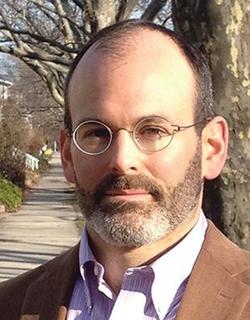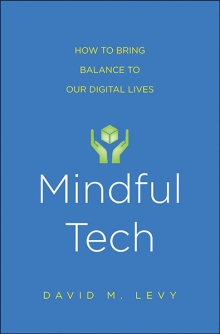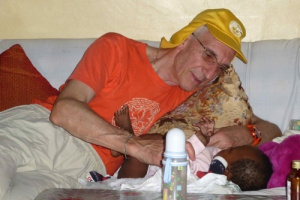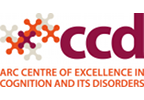
You can watch the talk here: https://www.mindandlife.org/news/a-simple-way-to-break-and-bad-habit/
 In this Ted Talk The Mind and Life Fellow Jud Brewer speaks about the relationship between mindfulness and addiction. I found this 9 minute talk clearly outlined this connection providing an overview more generally of the benefits of contemplative practices such as mindfulness. You can watch the talk here: https://www.mindandlife.org/news/a-simple-way-to-break-and-bad-habit/
0 Comments
 Some wonderful resources from Yoga 4 Classrooms, including the free downloadable: "Research Repository: Yoga and Meditation for Children and Adolescents", and a list of research articles examining the use of yoga and meditation in schools: http://www.yoga4classrooms.com/supporting-research  I'm wondering if this is quite so pertinent in Australia where the separation of church and state is very much 'live' but not discussed as frequently. Having said that I am reminded of the issues with the Mental Health Foundation of New Zealand's Mindful Aotearoa Program: http://mindfulaotearoa.nz/programmes/pause-breathe-smile/ a year or so back. This is from the Tricyle article: "Is mindfulness an educational tool, teaching skills that make kids more attentive and emotionally balanced? Or is it a religious practice—Buddhism in secular clothing—violating the Constitution’s separation of church and state? Is it a universally beneficial practice, or are its proponents introducing a cultural bias when they bring the practice to underserved schools? To read the article: http://www.tricycle.com/feature/does-mindfulness-belong-public-schools This new book just published by the Yoga Service Council and Omega Institute is according to the information I have just been sent a guide based on the knowledge of 23 leaders in the field, with the goal of supporting the sharing of yoga and mindfulness in schools in ways that are effective, safe, sustainable and socially just.
For more information go to: http://yogaservicecouncil.org/best-practices  Mindful Tech: How to Bring Balance to our Digital Lives, by David Levy This extract from the publisher's page on this new book by David Levy, introduces his insightful examination of engaging Information Communication Technology (ICT): "David Levy who has lived his life between the “fast world” of high tech and the “slow world” of contemplation, offers a welcome guide to being more relaxed, attentive, and emotionally balanced, and more effective, while online. In a series of exercises carefully designed to help readers observe and reflect on their own use, Levy has readers watch themselves closely while emailing and while multitasking, and also to experiment with unplugging for a specified period. Never prescriptive, the book opens up new avenues for self-inquiry and will allow readers—in the workplace, in the classroom, and in the privacy of their homes—to make meaningful and powerful changes." For more information about the book: http://yalebooks.com/book/9780300208313/mindful-tech And about Professor David Levy: https://ischool.uw.edu/people/faculty/dmlevy There are a number of options for buying this book I got mine from the Book Depository as they have free postage  An interesting article on mindfulness training in primary schools in the UK, from the authors, Vickory & Dorjee's abstract: This study reports the findings of a controlled feasibility pilot which assessed acceptability and emotional well-being outcomes of an 8-week mindfulness program (Paws b) for children aged 7–9 years. The program was delivered by school teachers within a regular school curriculum. Emotional well-being was measured using self-report questionnaires at baseline, post-training and 3 months follow-up, and informant reports were collected at baseline and follow-up. Seventy one participants aged 7–9 years were recruited from three primary schools in the UK (training group n = 33; control group n = 38). See full article in html: http://journal.frontiersin.org/article/10.3389/fpsyg.2015.02025/full?utm_source=newsletter&utm_medium=email&utm_campaign=Psychology-w6-2016 A dear friend and contemplative artist Erika Scilipoti http://www.erikascilipoti.com/ is developing a very interesting contemplative approach to food and photography. She has just recently launched her online shop: http://www.erikascilipoti.com/shop
 A friend of mine recently sent me information about a wonderful initiative in Africa. I think it provides a great example of applying the values that can arise from contemplative practice. Swami Padma who joined the Sivananda Yoga Community in 1974 has brought a piece of land in the Massai Mara district of Kenya .where he is now teaching people from the slums of Kenya to grow their own food, he says: "In 2008 I met Angela Pashayan, director of Yoga of Devotion. We formed a non-profit organization From Hand to Hand (FHH), whose purpose is to empower poor people to feed themselves through farming. At the end of January 2013, I dropped everything and flew to Kenya to begin a life of service to the poor. I've volunteered at orphanages, spent weekends at slums, visited numerous people within them, including many women who are HIV+, orphans, and people who live in the streets. In October 2013 FHH purchased 3 acres in Shartuka, and few months later 4 acres near Kilgoris. Both locations are in Massai Mara district, about 7 hours away from Nairobi. We have built a 6-roomed house to accommodate three families at the Kilgoris farm. FHH follows the principles of permaculture and is funded entirely through donations from well wishers. Contact me [email protected] See: https://fromhandtohand.wordpress.com/ Seminar Presentation on what is currently known about the effects of meditation, 18th March, 20163/2/2016  The effects of meditation: What do we currently know? Speaker : Professor Peter Sedlmeier, Department of Psychology, University of Chemnitz. Date : 18th of March 2017, 12:00PM until 1:00PM Location : Australian Hearing Hub, 3.610, Macquarie University. Research on the effects of meditation has been done for a long time, but it is only some ten years ago that the topic has begun to become mainstream. This is currently evidenced in still growing numbers of respective publications and a substantial coverage of the topic in major academic journals. The strong interest in meditation research allows for summarizing research results in meta-analyses that give much more exact views of the state of affairs than the results of single studies. In my talk I will briefly review what researchers mean when they talk about “meditation”. Then I will present the results of meta-analyses on psychological variables for healthy practitioners and for samples from clinical populations. The talk will also include metaanalytic results from brain research. I will end with a short discussion of the limitations of current meditation research, especially the lack of a comprehensive theory. Julieta Galante: ‘There seems to be a difficulty in dealing with the usual stresses of student life.’ Photograph: Martin Pope for the Guardian An interesting article from the Guardian about the use of mindfulness in a number of universities in the UK, including Cambridge and Buckingham, which aims to be the first British ‘health-positive’ university. There is also an interesting critique at the end of the article, from Frank Furedi at Kent University who suggests that mindfulness is now so commodified and ritualized that it is infantilizing. The Guardian article: http://www.theguardian.com/education/2016/jan/26/mindfulness-craze-schools-university-near-you-cambridge
|
Author: Dr Patricia Morgan
I am a teacher, contemplative practitioner, researcher, community developer and artist, currently working in the area of Contemplative Education, which I believe is one of the most important movements in education today. Categories
All
Archives |
